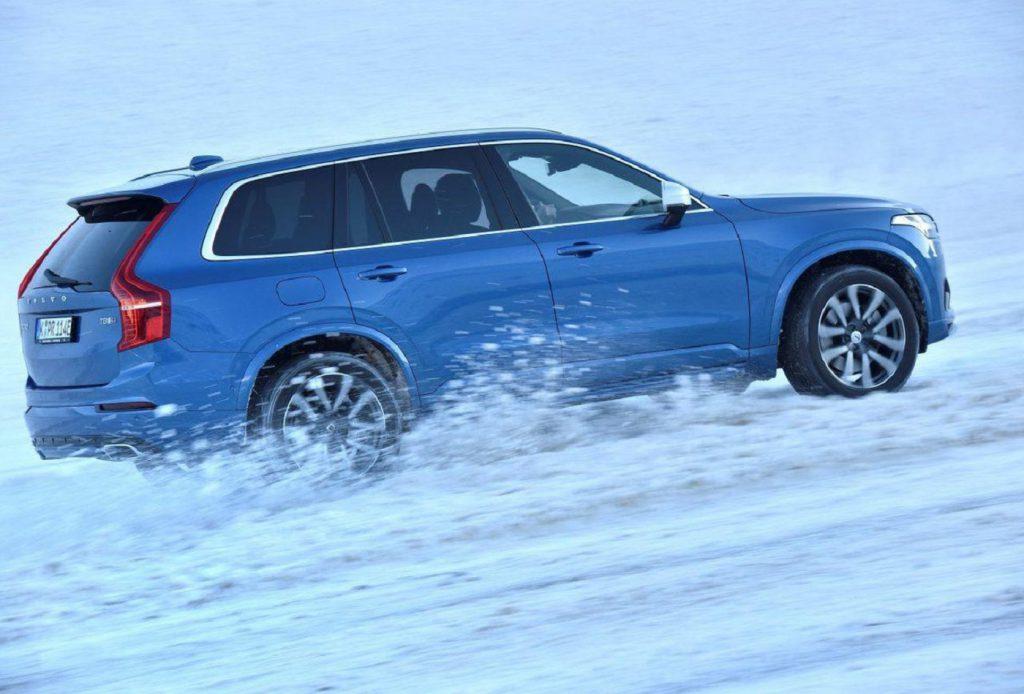Driving in snow is no layman’s work! You ought to be a skilled driver who knows how to maneuver the slippery lands. The other thing that matters is whether your vehicle is an FWD, i.e., front-wheel drive, or an AWD, i.e., all-wheel drive. Before you choose your drive system, here’s a detailed analysis of FWD vs AWD in snow.
Contents
FWD vs AWD In Snow: Knowing The Difference
Front-wheel drive or FWD is a system where the engine’s power is concentrated on the front wheels. On the other hand, an AWD is a system where the engine’s power is concentrated on all the four wheels equally.
The question here is, which one would perform better in snow? Let’s evaluate drive performance based on front wheel drive vs all wheel drive in snow.
1. An AWD To Keep You Moving
To start your car in a puddle of snow is one of the most challenging tasks at hand. If the tires are depressed in the snow, it will take a lot of effort to pull down the stuck tires. It is an AWD or the all-wheel drive that could save the day.
The only thing to keep in mind is the AWD should be supported by a limited slip differential (diffs) and transfer case.
Comparing the success rate of an AWD, it promises to take you where you need to be 95 percent of the time. The success rate becomes 100 percent with added snow 4X4 tires.
The AWD vehicles that have been popular for snow driving are Chevy Trailblazer or a Tahoe LTZ. This is just one facet of FWD vs AWD in snow. Let’s see how FWD helps in the harsh winters.

SEE MORE:
- The Best Ways to Drive Your Ways through Fog
- Effective Tips for Getting Your Stuck Car out From Snow
2. The FWD For Fair Driving
If you have a FWD vehicle to drive your way through the snow, you will surely have an advantage of shorter brake distance.
Moreover, almost all passenger vehicles on the road are front-wheel drive. If you wish to make your FWD a fairly suitable vehicle in the snow, make sure you have snow tires.
FWD also offers better traction when climbing up a hill. This is due to the engine’s weight being concentrated on the front wheels. The added advantage of driving an FWD reflects in the low cost of snow tires.
When you have to choose FWD or AWD for snow though, the latter is the best with snow tires. You can also go through our driving tips here for the right way to drive your RWD in snow.

3. The Comparison
Here’s a comparison chart for your better understanding:
| Parameter | All-Wheel Drive System | Front-Wheel Drive System |
| Definition | Power is distributed equally in the front and rear wheels | Power is only concentrated on the front wheels |
| Good For |
|
|
| Bad For |
|
|
| What Works | Best: AWD with winter tires | Better: FWD with winter tires |
| What Does Not Work | OK: AWD with summer tires | Poor: FWD with summer tires |
>> We have used Japanese cars that excel at snow handling, click here!!! <<
FAQs on FWD vs AWD In Snow
-
Are AWD vehicles immune to skidding or accidents in snow?
No, AWD vehicles are not immune to accidents in snow. While AWD improves traction, it doesn’t guarantee absolute safety.
Safe winter driving practices, including reducing speed and maintaining a safe following distance, are crucial for all vehicles in snowy conditions.
-
Are AWD vehicles more fuel-efficient in snow?
AWD vehicles typically have lower fuel efficiency compared to their FWD counterparts because they use more energy to power all four wheels. In snowy conditions, this difference in fuel efficiency may become more noticeable.
-
Do AWD vehicles require more maintenance for snow driving?
AWD systems may require slightly more maintenance than FWD systems due to the additional components. Regular checks of the AWD system, including the transfer case and differentials, are advisable to ensure proper functioning in snowy conditions.
-
Can I switch between FWD and AWD modes in some vehicles?
Some AWD vehicles offer selectable modes that allow drivers to switch between FWD and AWD to save fuel. However, it’s essential to follow the manufacturer’s recommendations for mode selection in specific driving conditions, including snow.
-
Are AWD vehicles worth the extra cost for snowy climates?
AWD vehicles can provide added confidence and safety in snowy climates, making them a worthwhile investment for some drivers. However, it’s crucial to weigh the benefits against the added cost and lower fuel efficiency.
-
Should I choose FWD or AWD for snow driving based on my needs?
The choice between FWD and AWD for snow driving depends on individual preferences, local climate, and driving habits.
AWD is generally better for snowy conditions, but FWD with winter tires can also perform well. Consider your specific needs and budget when making a decision.
Check out this video from Tyre Reviews to learn more about about FWD and AWD!
Wrapping Up
This is all about FWD vs AWD in snow! Always remember, no matter what drive system you choose whether it is AWD or FWD, snow tires are a must.
If looking for a reliable drive experience in the snow season, relying on AWD with snow tires would be an all-time best. Your safety is a priority; make sure you get back home where your loved ones wait for you eagerly!



